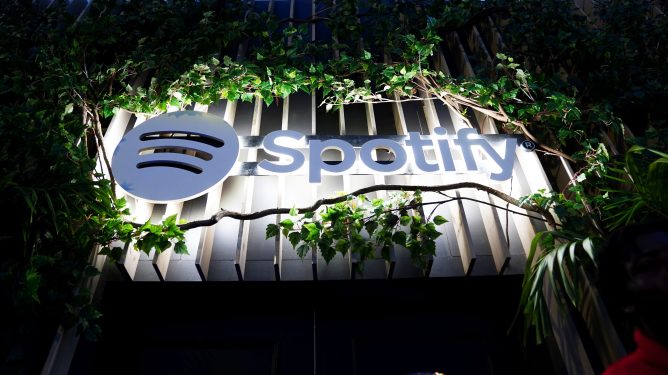Spotify Announces Another Round of Layoffs, This Time Affecting Podcast Division
Just a few months after announcing a significant wave of layoffs, Spotify plans to conduct another round of job cuts. This time, the company will be affecting its podcast division as part of a corporate reorganization. In particular, the company plans to merge Parcast and Gimlet Studios.
Internal Memo Outlines Changes
In an internal memo, Sahar Elhabashi, Spotify’s head of the podcast division, announced that the company was making changes that would lead to a workforce reduction of 2%. This change will affect around 200 jobs, and those who are impacted have already received an invitation to talk with someone from the HR department.
"We are expanding our partnership efforts with leading podcasters from across the globe with a tailored approach optimized for each show and creator," Elhabashi wrote. "This fundamental pivot from a more uniform proposition will allow us to support the creator community better."
Reasons Behind the Layoffs
However, doing so requires adapting; over the past few months, our senior leadership team has worked closely with HR to determine the optimal organization for this next chapter," she continued. "As a result, we have made the difficult but necessary decision to make a strategic realignment of our group and reduce our global podcast vertical and other functions by approximately 200 people, or 2% of Spotify’s workforce."
Generous Severance Packages
Spotify promises that employees who are affected by the layoffs will get "generous severance packages, including extended Healthcare coverage and immediate access to outplacement support." This is a departure from previous layoffs, where employees were offered minimal severance packages.
Scaling Back Original Content Strategy
In 2019, Spotify made a big bet on podcasts, and on exclusive content in particular. The company acquired some popular podcast networks, such as Parcast and Gimlet Media. This move into first-party content was an expensive one, with the company spending around $200 million for Gimlet Media and $56 million for Parcast.
However, it appears that Spotify is now scaling back this original content strategy. Evidence of this lies in the combination of Parcast and Gimlet into Spotify Studios. In her memo, Elhabashi names some of the podcasts that are still actively developed, such as "Stolen," "The Journal," ‘Science Vs,’ ‘Heavyweight,’ ‘Serial Killers,’ and ‘Conspiracy Theories.’
The Ringer to Remain Independent
Interestingly, The Ringer will remain an independent entity within Spotify. This suggests that the company is still committed to podcasting, but is taking a more nuanced approach to original content.
Why Podcasts Matter to Spotify
Podcasts have become increasingly important for Spotify’s growth strategy. With over 8 million podcasts available on its platform, the company has been investing heavily in improving the user experience and increasing discoverability of new shows.
However, it appears that Spotify is taking a more strategic approach to podcasting, focusing on partnerships with leading creators rather than trying to compete directly with them.
Conclusion
The layoffs are a significant blow to Spotify’s podcast division, but they also signal a shift in the company’s strategy. By scaling back its original content efforts and focusing on partnerships, Spotify is taking a more nuanced approach to podcasting.
As the market for podcasts continues to grow, it will be interesting to see how Spotify’s new strategy plays out. With a strong focus on creator partnerships and user experience, the company may be able to compete effectively with other players in the space.
What This Means for Podcasters
For podcasters who are partners with Spotify, this news may come as a relief. With the company’s focus on partnerships, creators will have more opportunities to monetize their shows through ads, sponsorships, and subscriptions.
However, for those who rely on Spotify’s original content efforts, this news may be concerning. The combination of Parcast and Gimlet into Spotify Studios suggests that the company is taking a more direct approach to creating its own content, which could potentially cannibalize existing podcasts.
What This Means for Listeners
For listeners, this news may not have an immediate impact on their experience with Spotify’s podcast platform. However, it does signal a shift in the company’s strategy, which may lead to new features and improvements to the user experience in the future.
As always, it will be up to creators and listeners to adapt to these changes and find ways to thrive in this evolving landscape.
What Do You Think?
We want to hear from you! Share your thoughts on Spotify’s new strategy and what it means for podcasters and listeners. Do you think this shift is a positive or negative development? Let us know in the comments below!
Related Stories
- Spotify Announces New Features for Podcasters
- The Future of Podcasting: Trends to Watch
- Spotify Invests in Original Content Efforts
Subscribe to Our Newsletter
Stay up-to-date on the latest news and trends in podcasting by subscribing to our newsletter. We’ll send you regular updates, insights, and analysis on the world of podcasts.
Follow Us on Social Media
Connect with us on social media for the latest news, tips, and resources on podcasting. Follow us on Twitter, Facebook, or LinkedIn to stay informed and engaged.
Get in Touch
Have a question or comment about this story? We’d love to hear from you! Contact us through our website or by email at info@techcrunch.com.

